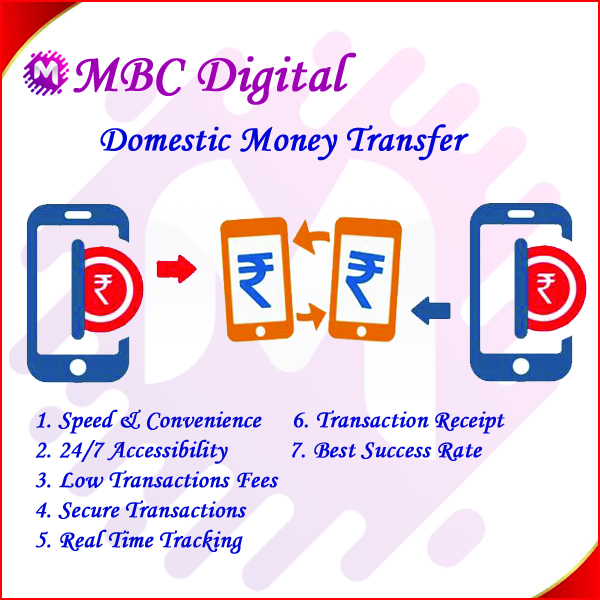Domestic money transfers can be conducted through various channels, including banks, online banking platforms, mobile banking apps, and third-party payment services. Here's an overview of the common methods:
- **Bank Transfer**:
- **NEFT (National Electronic Funds Transfer)**: This is a nation-wide payment system facilitating one-to-one funds transfer. It operates on a deferred net settlement (DNS) basis and settles transactions in batches.
- **RTGS (Real-Time Gross Settlement)**: RTGS is another funds transfer system where transfer of money takes place on a real-time basis. The minimum amount for RTGS transactions is generally higher than NEFT.
- **IMPS (Immediate Payment Service)**: IMPS allows real-time transfer of funds on a 24x7 basis, including weekends and bank holidays. It is instant and available through mobile banking, internet banking, and ATM.
- **UPI (Unified Payments Interface)**: UPI is a real-time payment system developed by the National Payments Corporation of India (NPCI). It enables instant money transfer between bank accounts through mobile phones using a Virtual Payment Address (VPA), mobile number, or QR code.
When initiating a domestic money transfer, you typically need to provide the following information:
- - Sender's details (name, address, account number, etc.).
- - Recipient's details (name, account number, IFSC code, etc.).
- - Transfer amount.
- - Purpose of transfer (optional).
- - Authentication details (OTP, PIN, etc., depending on the mode of transfer).
- - Confirmation of the transaction.
Ensure that you use secure channels and provide accurate information to complete the transfer successfully. Additionally, be aware of any transaction fees or charges associated with the chosen method of transfer.
